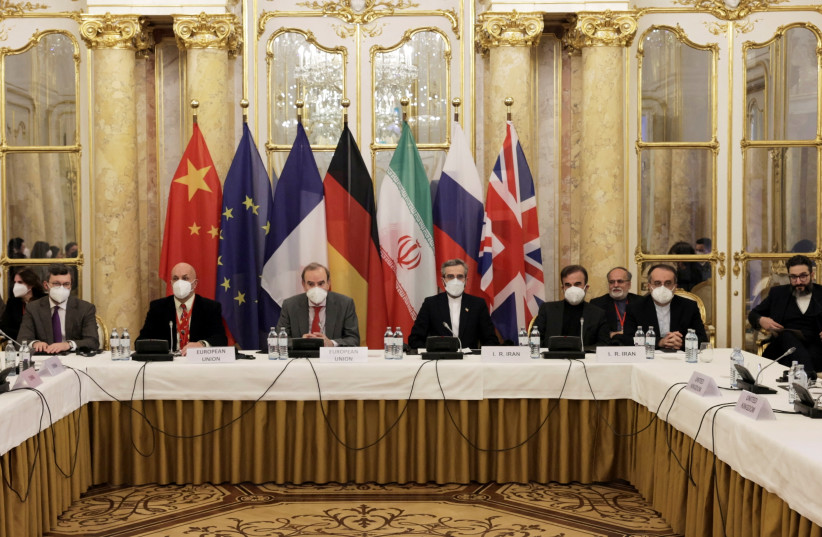As nuclear negotiations between Iran and the West continue in Vienna, many are beginning to voice their concern over the lack of progress. For many in the Middle East, this comes as no surprise. The past is riddled with anecdotal stories of the dangers of engaging with the Iranian regime. One such story took place in Kenya and provides a perfect window into the true nature of Iranian diplomacy. The saga would play out sporadically over seven years and read like a bad script for an even worse movie. On the surface, this story is bizarre and almost comical, on a deeper level, it illuminates the atypical nature of Iranian diplomacy.
On June 19, 2012, news broke that two terrorists had been arrested in Kenya and charged with possession of explosives. The fact that terrorists were arrested in Kenya was not surprising, as terrorist activity has spilled over from the Somali border in recent years. What was unique about these arrests was the two suspects were not Kenyan or Somali, but Iranian tourists who had recently flown into the country.
What exactly transpired was a mystery at first. Kenya-Iran relations were seemingly positive at the time, with the two countries concluding negotiations earlier that month over the purchase of 30 m. barrels of Iranian oil. Iran’s ambassador to Kenya denied any connection to the two Iranians and the lawyer for the two Iranians expressed outrage, claiming they were investors whose arrests have threatened Kenya-Iran relations.
However, based on local news reports and court records, the initial arrests and subsequent saga unfolded as follows: On June 12, 2012, two suspected Islamic Revolutionary Guard Corps (IRGC) operatives, Ahmad Mohammad and Sayed Mousavi, were dispatched by Iran to carry out attacks in Kenya against Western targets. The pair flew into Nairobi, Kenya on tourist visas and traveled to the port city of Mombasa. While there they met with an accomplice and acquired a large quantity of RDX, an explosive material used in bomb making. They stashed the explosives near a golf resort and departed.
UNBEKNOWNST TO the two Iranians, Western intelligence had tracked the pair and tipped off local security services. Mohammad and Mousavi were arrested, interrogated and led investigators to the stash of the explosives they had hidden earlier. A judge quickly denied bail, in part because an additional 85 kg. of RDX had been smuggled into the country and remained unaccounted for. Upon conclusion of their trial, Mohammad and Mousavi were sentenced to life in prison and the story quickly faded out of sight. A few years would go by with little to no media coverage of the matter, except for a series of appeals by their lawyer.

In 2016, the story reappeared under eerily similar circumstances. In November 2016, two lawyers from Iran’s Ministry of Justice, Nasrollah Ebrahimi and Abdolhosein Ghola Safafe, traveled to Kenya on behalf of the jailed Iranians for a legal follow up. After visiting their clients at the Kamiti Maximum Security Prison in Nairobi, Kenya, the news broke that the two lawyers had been arrested on terrorism charges. After their meeting at Kamiti prison, the lawyers had apparently been caught secretly filming the Israeli Embassy in Nairobi. The two lawyers were released from custody later that day, rearrested two days later and ultimately deported back to Iran.
As interesting and bizarre as these events are, the story takes another turn a few years later. In February 2019, news broke that the Iranian ambassador to Kenya, Hadi Farajvand, was under criminal investigation following a failed plot to secure the release of the two jailed Iranians. Reportedly, he bribed two Kenyan officials in an attempt to secure the release of the Iranians. The ambassador had even gone as far as purchasing plane tickets for the two Iranians in anticipation of their release.
HOWEVER, IN a comical twist of fate, the two Kenyan officials he paid were not associated with the government at all, but were con artists who had swindled the ambassador out of his money. As it stands today, Mohammad and Mousavi are still behind bars and the Iranians continue their malevolent activity in the country.
There are contemporary lessons to be drawn from Kenya’s experience with the Iranian regime. Iran’s initial overtures of negotiation and diplomacy were not only disingenuous, but quickly gave way to hostility. While on the surface Iran worked within Kenya’s legal system, at the same time they continued to circumvent the entire process itself, dispatching hostile operatives into the country to carry out Iran’s true objectives. At no point did Iran ever cease its malevolent activity in Kenya, not after the initial arrests of the two Iranians, not after the arrests of their lawyers and not after the exposure of criminal activity by its ambassador. As recently as November 2021, another Iranian was arrested in Kenya under similar terrorism charges.
Within the context of the current nuclear negotiations in Vienna, stories like these are important to remember. Western diplomats continue to proclaim that an agreement with Iran is right around the corner. In the meantime, Iran continues its expansionist agenda and shows no signs of rapprochement. Their nuclear program is unabatedly continuing, four American citizens remain imprisoned in Iran and Iranian proxies continue to launch attacks across the region.
Even if some form of agreement is reached, Iran’s long-term strategic objectives will remain unchanged. Iran is happy to come to the negotiating table, but only as a means to its own end: Acquiring nuclear weapons. Diplomacy is not Iran’s true face and as these negotiations continue, we would all do well to remember this.
The writer is the legislative fellow at the Endowment for Middle East Truth (EMET) in Washington.
